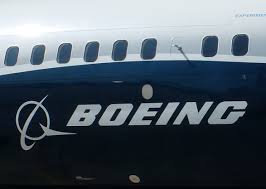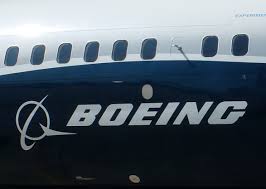
A record annual loss of $12bn was reported by United States based airplane maker Boeing Co as it again delayed the launch of its all-new 777X jet and consequently booked a one time charge of $6.5bn charge for the delay in the programme.
The fall in demand for the largest jetliners of the industry has been exacerbated by the on-going novel coronavirus pandemic as airlines postponing or cancelling deliveries of the planes because of restrictions still in place for international air travel which has significantly impacted the cash flow position of the American plane maker.
The company delayed for the third time the launch of its 777X, a larger version of the 777 mini-jumbo, as the company booked a $6.5bn pre-tax charge for the delay and said that it now expects the planes to enter service only by late 2023.
The planning and development of the widebody jet was being done by the company with the target of releasing it in 2022 which was already two years later that the company had initially planned.
Delivery of Boeing’s 787 Dreamliners to airlines was hit because of a historic slump in air travel globally which resulted in the aircraft finding its place in the company’s inventory and thereby further hurting the company which was already in a slump because of an increase in its inventory of about 450 of its 737 MAX jets which had been grounded in March 2019 following two deadly crashes involving the plane within a span of just five months from one another.
With the recovery of air travel globally in a gradual manner in 2021, Boeing will be able to resume the shipments of its wide-body 787 Dreamliners, expects the company.
According to analysts, there was an almost 70 per cent drop in the deliveries of the 787s of Boeing in 2020 to just 53 planes and it is not expected that the deliveries will recover to 2019 levels prior to 2024 at least.
So far in January, an additional 13 737 MAX aeroplanes were delivered by it from its inventory, Boeing also said. In December, the company had delivered 27 of the aircraft following the clearing of the jet by the US authorities to fly again after a 20-month grounding.
For the fourth quarter ended December 31, the company reported a rise in its net loss to $8.44bn compared to $1.01bn a year earlier for the same period which pushed its fill year losses to a record $11.94bn. For the fourth quarter, the company’s revenue dropped by 15 per cent to $15.30bn.
There was however some good news for Boeing on Wednesday as the European Union Aviation Safety Agency (EASA) cleared Boeing’s modified 737 MAX aircraft and said it was safe for flying in the air once again and could be returned to service by airlines in Europe which ended the 22-month flight ban on the aircraft because of the two crashes in which 346 people were killed.
EASA conducted an independent European review of the changes that had been introduced in the planes which ranged from changes in cockpit software to maintenance checks and pilot training which prompted the EASA Executive Director Patrick Ky to say that the agency “every confidence” that the plane was safe for flying.
(Source:www.aljazeera.com)
The fall in demand for the largest jetliners of the industry has been exacerbated by the on-going novel coronavirus pandemic as airlines postponing or cancelling deliveries of the planes because of restrictions still in place for international air travel which has significantly impacted the cash flow position of the American plane maker.
The company delayed for the third time the launch of its 777X, a larger version of the 777 mini-jumbo, as the company booked a $6.5bn pre-tax charge for the delay and said that it now expects the planes to enter service only by late 2023.
The planning and development of the widebody jet was being done by the company with the target of releasing it in 2022 which was already two years later that the company had initially planned.
Delivery of Boeing’s 787 Dreamliners to airlines was hit because of a historic slump in air travel globally which resulted in the aircraft finding its place in the company’s inventory and thereby further hurting the company which was already in a slump because of an increase in its inventory of about 450 of its 737 MAX jets which had been grounded in March 2019 following two deadly crashes involving the plane within a span of just five months from one another.
With the recovery of air travel globally in a gradual manner in 2021, Boeing will be able to resume the shipments of its wide-body 787 Dreamliners, expects the company.
According to analysts, there was an almost 70 per cent drop in the deliveries of the 787s of Boeing in 2020 to just 53 planes and it is not expected that the deliveries will recover to 2019 levels prior to 2024 at least.
So far in January, an additional 13 737 MAX aeroplanes were delivered by it from its inventory, Boeing also said. In December, the company had delivered 27 of the aircraft following the clearing of the jet by the US authorities to fly again after a 20-month grounding.
For the fourth quarter ended December 31, the company reported a rise in its net loss to $8.44bn compared to $1.01bn a year earlier for the same period which pushed its fill year losses to a record $11.94bn. For the fourth quarter, the company’s revenue dropped by 15 per cent to $15.30bn.
There was however some good news for Boeing on Wednesday as the European Union Aviation Safety Agency (EASA) cleared Boeing’s modified 737 MAX aircraft and said it was safe for flying in the air once again and could be returned to service by airlines in Europe which ended the 22-month flight ban on the aircraft because of the two crashes in which 346 people were killed.
EASA conducted an independent European review of the changes that had been introduced in the planes which ranged from changes in cockpit software to maintenance checks and pilot training which prompted the EASA Executive Director Patrick Ky to say that the agency “every confidence” that the plane was safe for flying.
(Source:www.aljazeera.com)





